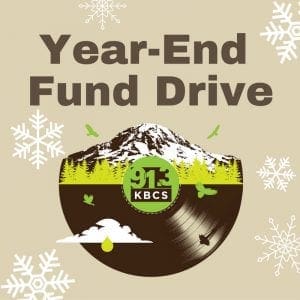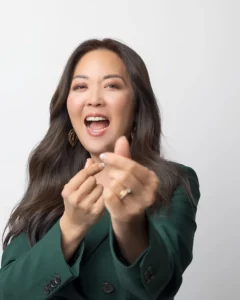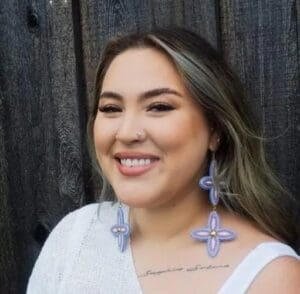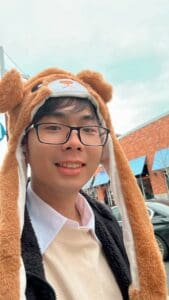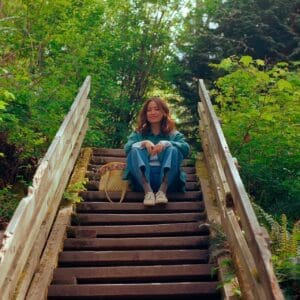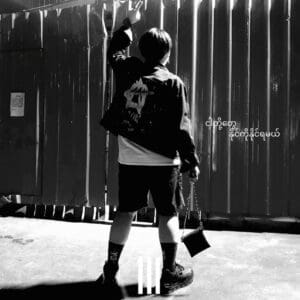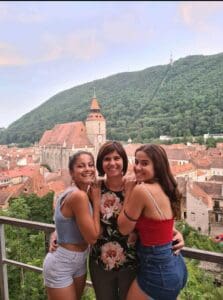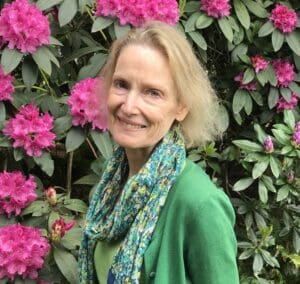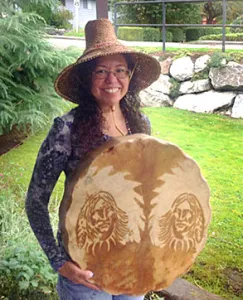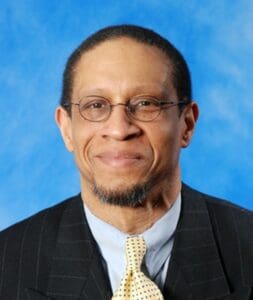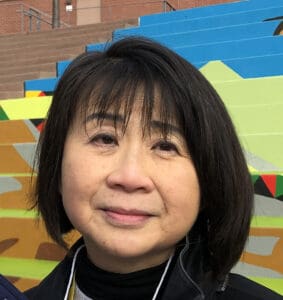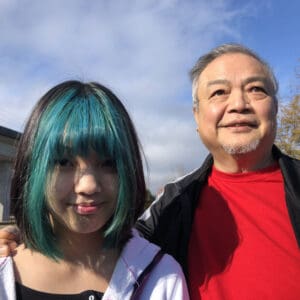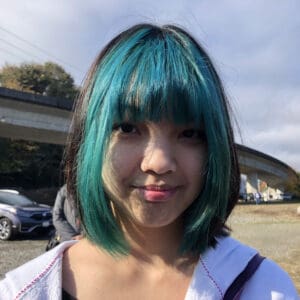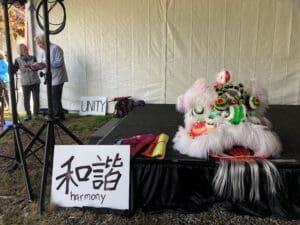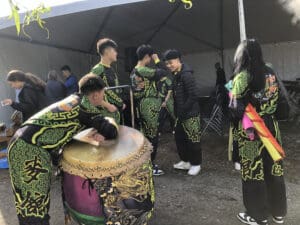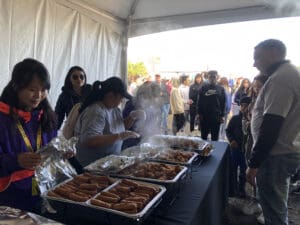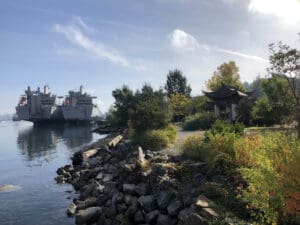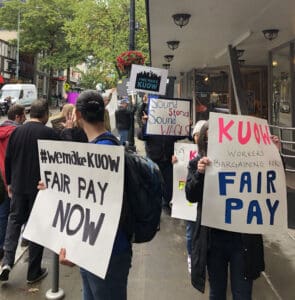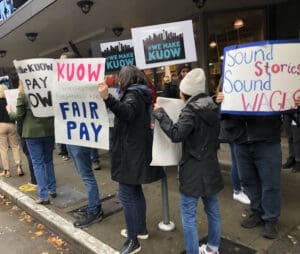2022 Year-End Message from our General Manager
Dear Friends and Supporters of KBCS,
As this year comes to close, I want to thank everyone who listens to KBCS for your enduring support for true community radio across the greater Puget Sound. For nearly fifty years now, listener supporters like you have always been there for us during the good times and those occasional not so good times.
That’s the definition of a true friend; someone who is there for you when you need them. Fair weather friends come and go, but faithful friends are always willing to lend a hand when you are down on your luck or going through a tough time and you need someone just to be there for you.
At the turn of knob, flick of a switch, the click of a mouse, or a voice command to Alexa or Siri, KBCS is always there for you. Those familiar and friendly voices, many of which you have been listening to for decades, are there for you, day and night, every single day of the year, sharing their passion for music and life here in the Pacific Northwest. They are the voices of everyday people that live, work, and play right here in our community.
Nonprofit community radio stations like KBCS are often especially hard hit during times of inflation when for many people just filling up the car to go grocery shopping is a major challenge. At KBCS we understand the quandaries associated with living on a tight budget and remain committed to bringing you the true community radio experience. An experience featuring our impressive variety of music programming and impactful local news without the need for anyone to pay a monthly subscription fee.
But radio broadcasting isn’t cheap, and it takes a village of like-minded people to keep nonprofit community radio KBCS on the air. During this season of giving, I trust that KBCS is on your gift list, and if it is within your means I hope you can add a little more to your end of the year giving to help close the gap in our fundraising goal created by those who just can’t afford a donation to KBCS this year.
The economic cycles of boom and bust come and go, but thanks to supporters like you, KBCS is still on the air. Next year marks our 50th anniversary of broadcasting across the greater Seattle metro. Fifty years of true democracy in action where everyday people from all walks of life have a broadcasting voice on the air and not just professional broadcasters or big corporate media conglomerates. Please help us preserve this unique democratic tradition here in the Pacific Northwest with a donation today so that the next generation of Puget Sounders will have the same opportunity we have to take part in true community radio. Make your tax-deductible donation now.
Seasons Greetings and Happy New Year from all your friends at KBCS to all our friends and neighbors across the greater Puget Sound and online around the world.
Dana Lee Buckingham
KBCS General Manager and Proud Sustaining Supporter of Community Radio KBCS
Stand-up Comedian and Writer, Julie Kim
Teaching Lushootseed to Toddlers
Lushootseed is the language spoken by Coast Salish tribes in the greater Seattle area and north to Skagit River Valley near Bellingham and Whidbey Island, and south to Olympia and Shelton. In 1819, Congress passed the Civilization Fund Act to assimilate indigenous youth to western culture. The policy authorized forcible separation of indigenous children from their families to be sent to boarding schools far away, where they were to be stripped of their language, culture and religious practices. It wasn’t until the 1970’s that this practice was outlawed. This caused a severe disruption in likelihood for traditional practices and lifestyles to continue.
Today, members of these communities are reawakening their native tongue through education to everyone from 6 month olds, elementary and high school students and adults.
Jasmyne Diaz is an enrolled Tulalip member and shares a peek into her work of teaching Lushootseed language as a Teacher Assistant to six-month to two-year old children in Tulalip, Washington through the Tulalip Lushootseed Language Program
Producers: Laura Florez and Yuko Kodama
Bellevue College Global Leaders Music Picks
Du Dinh
Hi guys, my name is Du Dinh. I’m currently one of the Global Leaders at Bellevue College. This is my second year here and my major is computer science. I love playing sports, video games, listening to music and throwing Pokemon games on YouTube. Today I would like to share one of my favorite songs with you guys. The name of the song is called “Có Đâu Ai Ngờ.” It is a Vietnamese song by a Vietnamese artist, Cam. This song is about love and the melody and it’s really slow and cute. I hope you can enjoy it and have a nice day!
Jemima
One of my favorite songs is “Tout Seul” by Gally and Heritier Wata. It is one of my favorite songs because it is a mix of emotions. It is quiet and at the same time deep. It’s a song that I discovered when I went to Canada to see my brothers and sisters and I know it was one of the favorite songs of my brothers. So every time that I listen to it, I just remember summer there and a lot of memories. I feel just quiet, calm and happy. Even if it’s a sad song – I don’t know how, but I feel happy, because it also relates to a lot of stuff that has happened in my life before. I hope you enjoy it!
Julia
Hey guys, my name is Julia and I’m one of the Global Leaders at Bellevue College. I’m from Taiwan and I’m studying Business. I want to share this song called “If Only” by Ozi. He is a Taiwanese singer. This song is basically about rewinding time, and what he would do if he could talk to his grandma. I hope you like the song!
Kelan
Hi, my name is Kelan and I come from China. This is my third year in the U.S and my second quarter at Bellevue College. I’m studying Digital Media Arts. I’m also a singer and songwriter. The song I’m going to introduce is actually a song that I released six years ago. It’s called “Flower”. This was one of the few songs that I wrote when I just started songwriting on guitar. Writing songs to me is like writing journals. I like to document my thoughts with melodies, and this song is one of the examples. A flower is a metaphor for thoughts that come and go and never settle for anything. It doesn’t belong anywhere. A flower is free. It could go to any place, just like your thoughts. This song was awarded the top 20 singles by the Singapore Freshmusic Award in 2017. Please enjoy and I hope you like it!
Myo Han Tun Kyaw
Hello everyone, my name is Myo Han Tun Kyaw and I’m one of the Global Leaders from Burma. I’m currently a computer science student at Bellevue College. Today, I would like to share a song from my country called “Yone Kyi Yarg” by Lay Phyu . Although the song was very popular in 2010, it got popular during the protesting stage of the Spring Revolution, when we protested against the military government.
So the reason why this song holds so much meaning for Burmese people, is because it tells us that we have to believe in what we are doing. And although we might have regrets and losses we still need to keep going to reach the final goal. In this song, people are literally sacrificing their life for this thing called “belief”. It is relevant during the protests, because people are dying on the streets due to the military government.
Those people are fighting for freedom and we all are. So it helps us not to give up easily on our rights and freedom. The song is motivating and it’s not only for protesting, you can listen to it anytime to get you motivated. It’s a really good song. Enjoy!
Nada and Leda
Nada: Hi everybody my name is Nada.
Leda: Hi everybody my name is Leda.
Nada: And we are from Italy. I’m currently studying at Bellevue College for my bachelor’s degree in digital marketing. I love this song called “A Te” because it truly reminds me of the bond I have with my family.
Nada and Leda: In Italy, the family “La Famiglia” is really important.
Women’s Voices from the Holocaust
The performance, The Ruins of Memory: Women’s Voices of the Holocaust highlights the experiences of Jewish women throughout the European continent who navigated their way through a horrific time in the 20th century. It’s performed by Tales of the Alchemysts Theatre at Taproot Theater this Friday, Saturday and Sunday. You can find more information on the event here.
Producer: Yuko Kodama
Photo: by Michael Loggins
Incorporating Lushootseed Language Into Life
Reawakening Lushootseed Language: Language Warriors
Lushootseed is the language spoken by Coast Salish tribes in the greater Seattle region. In 1819, Congress passed the Civilization Fund Act to assimilate indigenous youth to western culture. The policy authorized forcible separation of indigenous children from their families to be sent to boarding schools, where they were to be stripped of their language, culture and religious practices. It wasn’t until the 1970’s that this practice was outlawed. Today, members of these communities are reawakening their native language through educational programs.
KBCS’s Laura Florez spoke with Lois Landgrebe, of Snohomish, Stillaguamish, Duwamish and Nez Perce descendants, and a Lushootseed educator at Quil Ceda Tulalip elementary school in Tulalip, Washington through the Tulalip Lushootseed Program. Landgrebe describes what it means to be a language warrior.
Producers: Laura Florez, Yukiko Arichi and Yuko Kodama
Christian Rhetoric in Politics: Dr. Obery Hendricks
White Christian Nationalism and the Midterms Elections
On November 6th, 2022, 4pm PST at the Rainier Art Center, located 3515 S Alaska St, Seattle, WA 98118, Valley and Mountain Fellowship will host a dialogue between Rev. Dr. Obery Hendricks, author, Christians Against Christianity: How Right-Wing Evangelicals Are Destroying Our Nation and Our Faith and Dr. Anthea Butler, author, White Evangelical Racism: The Politics of Morality in America. The topic is White Christian Nationalism and the Midterm Elections. The dialogue will be moderated by the Right Rev. Dr. Edward Donalson, III, author, #BlackLivesMatter: Toward an Intersectional Theology. The event will be livestreamed on the Valley and Mountain YouTube page.
As congressional hearings into the January 6th attack on the United States Capitol come to a close and the rise the Neo-Nazi organizations in our nation, the mid-term election are proving to be as contentious as ever. Equally, candidates around the country are trafficking white Christian nationalism. With each passing election, fringe political ideas become more and more mainstream. Simultaneously, white supremacist ideas at work in Christian practices must be contended with.
Valley and Mountain Fellowship’s Center for Faith, Art, and Justice in partnership with the Innovation Vitality Team of Pacific Northwest Conference of the United Methodist Church
has invited scholars, clergy, and activists working at the intersection of race and faith to share their wisdom to our broader communities. This dialogue is the first in a series entitled “Set us free from fear: Faith, White Supremacy, and Politics”.
Dr. Anthea Butler, Geraldine R. Segal Professor in American Social Thought and Chair of Religious Studies, University of Pennsylvania. In White Evangelical Racism: The Politics of Morality in America, Butler reveals how evangelical racism, propelled by the benefits of whiteness, has since the nation’s founding played a provocative role in severely fracturing the electorate.
Rev. Dr. Obery Hendricks is a Visiting Professor of Religion, Columbia University. In his recent book, Christians Against Christianity: How Right-Wing Evangelicals Are Destroying Our Nation and Our Faith, Hendricks challenges the right-wing evangelical misuses of the Bible that are embedded in their rabid homophobia, their poorly veiled racism and demonizing of immigrants and Muslims, and their ungodly alliance with big business against the interests of American workers.
Rev. Dr. Edward Donalson, III, Assistant Clinical Professor and Director of Doctoral Ministry, Seattle University, School of Theology and Ministry. In #BlackLivesMatter: Toward an Intersectional Theology, Donalson examines the implicit theological aspects of the largest protest movement in the United States since the Civil Rights Movement.
Expulsion of Tacoma’s Chinese Residents in 1885
On Saturday, Hundreds of people walked from Tacoma’s Tollefson Plaza to the Chinese Reconciliation Park for the annual Walk for Reconciliation Against Racism. The event was to observe the day about 200 Chinese residents in the Tacoma area were forcibly removed in 1885. KBCS’s Yuko Kodama has this story.
Lotus Perry, Chinese Reconciliation Project Foundation Board Member and Volunteer
Rinrada Hui and father, Cho Ryong Hui
Rinrada Hui
Mak Fai Kung Fu Lion Dancers
Food prepared for walkers at the end of the walk
Chinese Reconciliation Park


